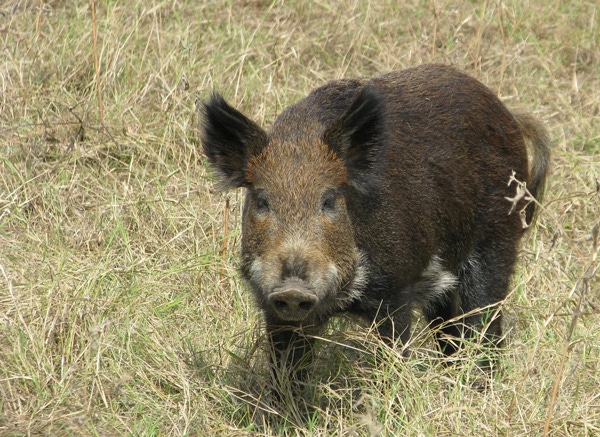July 16, 2012

The Samuel Roberts Noble Foundation has joined several land-grant university Extension entities throughout the United States to form a “community of practice” that will fight the growing feral hog problem.
This Feral Hog Community of Practice brings together a group of professional educators with expertise on a variety of feral hog related topics. Together, they have launched a new Web-based resource on www.eXtension.org to help provide agricultural producers, wildlife managers and landowners with critical information and expert application of knowledge to meet the growing demand for timely and accurate information.
“This community of practice is designed to deliver new ideas and strategies to reduce feral hog numbers,” said Russell Stevens, Noble Foundation wildlife consultant. “When you have a problem that is as significant as the feral hog issue is in the U.S., it requires a multi-institutional, multi-state, and multi-disciplinary educational and informational effort. This resource will bring the best and most timely educational information to those who need it most, as well as accurate information to the public.”
The new Web-based resource (available at http://www.eXtension.org/feral_hogs) will focus on control, adaptive management, biology, economics, disease risks and human interface relating to feral hogs across the U.S.
“The eXtension.org website delivers objective, well-researched knowledge from some of the best minds within the nation’s land-grant university system and beyond,” said Dr. Jim Cathey, AgriLife Extension wildlife specialist who has served as leader of the effort. “For the past year, our group has been developing educational resources for feral hog management and now those resources are available to the public.”
Through eXtension.org, there are already 35 communities of practice related to other important public resource areas. This website provides expertise and answers based upon research, creative solutions to today’s complex challenges and answers addressing users’ specific needs by field-tested data.
You May Also Like




